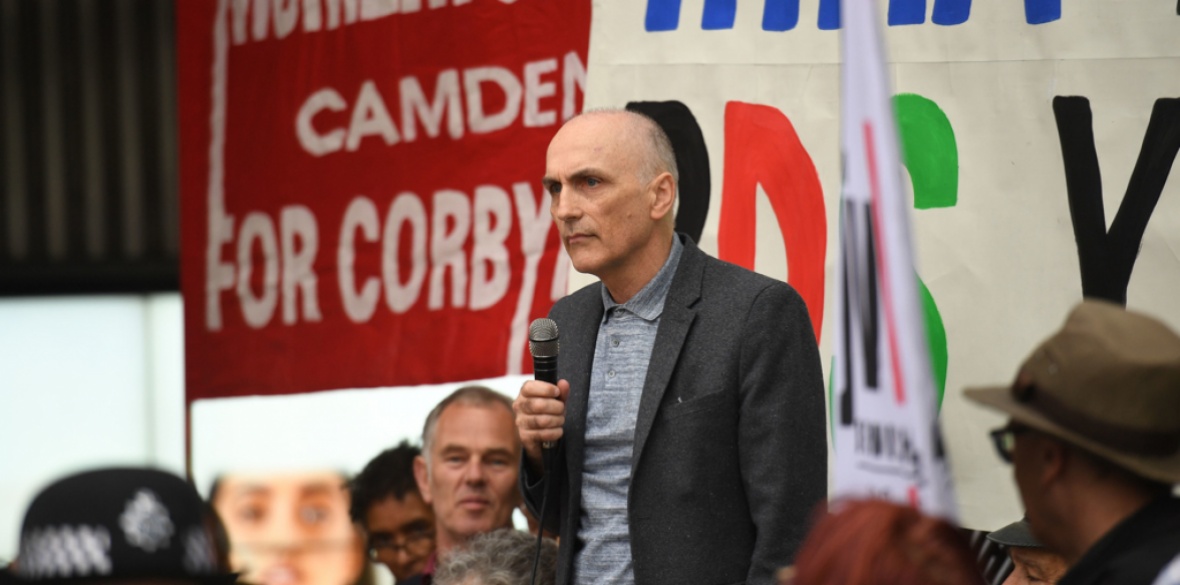This is the last article you can read this month
You can read more article this month
You can read more articles this month
Sorry your limit is up for this month
Reset on:
Please help support the Morning Star by subscribing here
WHEN I sat down to write this article, Labour’s national executive committee was meeting for the second time in the week before conference to finalise the rule changes it will recommend to Labour delegates in Liverpool.
If you’re already yawning, stay with me. Often technical, the struggles that take place at Labour’s annual conference this year are exciting and historic and here’s why.
Tony Benn famously said that democracy is the most revolutionary thing in the world. I’ve experienced the consequences that underline Benn’s insight first hand.
Over summer parliamentary recess I toured the country, speaking at nearly 30 different meetings from up at the Scottish borders, over to Wales and down to Truro in Cornwall, arguing for the open selection of all Labour’s candidates for every general election.
Judging by the reaction to these events, including among my colleagues in the PLP, anyone would think I was calling for the guillotine.
The truth is, Labour MPs in safe seats currently have a job for life.
We know that, among people who vote in this country, few vote for the personal merits of their local MP. The majority vote for the party.
The evidence is borne out in polling. If you’re unconvinced, briefly examine the fate of former high-profile Labour MP Simon Danczuk, who stood as an independent last year and, surprise, surprise, failed to be elected.
Open selection is a rule change that would ensure that, each time there is a general election, the sitting MP must face a contest for the honour of representing the party again. It is basic democratic practice for any public institution, from primaries in the US to the method for electing officers at the AGM of a local allotment association.
Such a change would be a revolution. It would change not only the make-up of Labour MPs but it would change the sprit and culture of the Labour Party as a whole.
Members and affiliates would have a powerful stake in the party. Rather than being mere leaflet-distributing foot soldiers of an election campaign, their horizons would be infinitely larger, the incentives for education and upskilling greater and the access of working-class people to Parliament far easier.
But Labour’s NEC begs to differ. The rule changes they recommended were endorsed on Sunday after a heated discussion on the conference floor and only after the Unite delegation voted against the union's own policy.
Unite’s conference backed mandatory reselection at its 2016 conference. Had the Unite delegation voted in line with their own policy the outcome would have been very different.
Efforts to stop the NEC proposal by referring back the conference arrangements committee’s (CAC) recommended order of business was only accepted by 53.63 per cent to 46.37 per cent of the vote.
Nearly all the delegates from Constituency Labour Parties voted to refer back the CAC agenda proposals in order to support open selections, as did the FBU delegation, but most union delegations went along the CAC.
The reformed trigger ballot system means sitting MPs will have to face a reselection vote if they fail to gather 66 per cent of support from both party branches and affiliated trade unions.
The problem with this approach is it creates negative campaigns, meaning the only way a sitting MP is replaced is by organisational effort made to actively remove them prior to an election. This stands to be a waste of resources, can create bad blood locally and an image problem for the party more generally.
The NEC proposals are far from ideal and far from democratic. Consider for a moment the comparison that, for a general election to take place in Britain, 33 per cent of British citizens had to vote for one. It just doesn’t compute.
There isn’t space here to list the other recommendations the NEC is making which, on the democratic front, have been mediocre.
The Democracy Review appears to have been a missed opportunity, particularly in regards to local government, where plans to allow grassroots members to elect council leaders haven’t been recommended.
On electing a future leader of our party, the current threshold requiring 10 per cent of MPs to nominate is set to stay, with an additional requirement to obtain 5 per cent of CLPs or trade unions to nominate as well.
According to research carried out by Momentum, at least 75 per cent of CLP delegates to conference support open selections, and the vote referred to above suggests the actual figure was higher.
The situation is comparable to the majority of the general public who support policies of renationalisation yet until recently public ownership had been a dirty word for Labour.
It’s what I like to call common sense socialism, and it requires trust in the good sense of ordinary people to make it work.
Nevertheless, the NEC recommendation represents a historic moment. After three years of cynicism and smears, the reformed trigger ballot has shifted the balance of power a little in the right direction between CLPs and the PLP.
As a result, all MPs will have to reflect more deeply as to their standing among the membership. It’s a step that may well change the political make-up of the PLP, but we should see it as only the first step of many. We’re only halfway down that road.
We need to remember the words of Tony Benn when he said: “Democratising society requires democratising our own party first.”
So the struggle carries on and I will be continuing my Democracy Roadshow tour after conference because the demands for open selection and other democratic reforms will not be squashed by a bureaucratic machine.
Chris Williamson is Labour MP for Derby North. He is a supporter of the Socialist Campaign Group of MPs.










